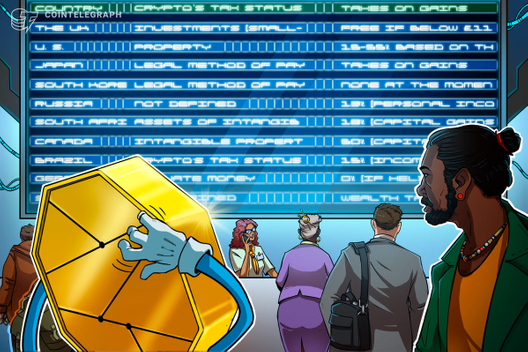New App for COVID-19 Combines Blockchain With Web Inventor’s Privacy Tech
The U.K.’s Open University has developed a COVID-19 proof-of-immunity app that combines blockchain with a data solution from web inventor Tim Berners-Lee.
1718 Total views
36 Total shares

The United Kingdom’s Open University has developed a COVID-19 proof-of-immunity app that combines blockchain with a privacy-preserving data solution from web inventor Tim Berners-Lee.
The prototype app, undergoing testing as of April 29, would support the proof and verification of tamper-resistant test results for COVID-19 antigen tests and vaccination coverage.
The solution could ostensibly be used to provide frontline workers, healthcare professionals and the wider public with reliable immunity certificates that would be stored on a distributed, immutable and trusted blockchain-based registry.
Alongside consortium blockchain technology, the app uses solid “pods” — an acronym for the personal online data stores developed by world wide web inventor Tim Berner-Lee’s web decentralization project Solid.
Each user would be asked to provide proof-of-identity before antigen testing, which would then be hashed and recorded to the blockchain registry. Once test results have come in, they would be issued as a digitized immunity certificate to a solid pod on the user’s phone.
A verifier would then be able to check the authenticity of any certificate by using their own mobile device to send a hashed version of the certificate to the public registry to seek a match.
By combining blockchain, distributed server architecture and solid pod technology, Open University claims the public will have a high level of control over the storage and presentation of their healthcare data. Professor John Domingue, director of the Knowledge Media Institute, said:
“Our app, building on several years of research into decentralised certification, is readily scalable, applicable generically, and waiting in the wings for immunity testing to be in full effect.”
Blockchain during the COVID-19 era
Earlier this month, the European Commission and University College London partnered with the International Association for Trusted Blockchain Applications to form a dedicated COVID-19 Task force. Among other projects, the initiative will pursue enterprise blockchain solutions that could help tackle governmental, social and commercial challenges posed by the global pandemic.
A myriad of blockchain solutions — including the Covi-ID platform, an immunity passports solution from Chiliz, and a GDPR-compliant data tool from Ubirch and Centogene — have already been proposed to help fight the health crisis while preserving user privacy.









